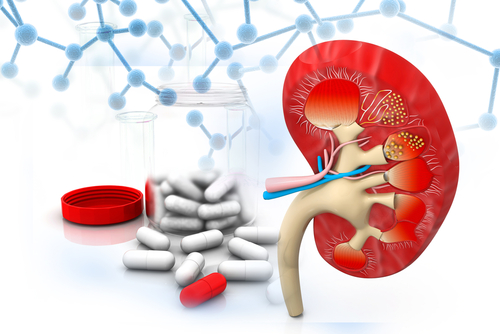How Might aHUS Affect My Life Expectancy?
Written by |

Atypical hemolytic uremic syndrome (aHUS) is an extremely rare disease that is characterized by the formation of blood clots in the small blood vessels of the kidneys. It is marked by the development in patients of hemolytic anemia (destruction of red blood cells), thrombocytopenia (low platelet count), and kidney failure.
What causes aHUS and who develops it?
aHUS occurs as a result of the uncontrolled activity of the body’s complement system — a group of immune system proteins responsible for protecting against infection — and attacks on healthy cells that result in the formation of blood clots. These blood clots can lead to life-threatening complications such as kidney damage, heart attack, and stroke.
aHUS is caused by a combination of genetic and environmental factors, such as medicines, cancer, bacterial and viral infections, or even pregnancy. The disease can develop in a person irrespective of age and gender, but generally more women are diagnosed with aHUS than men.
What is the likely course of aHUS?
In more than half of all patients, aHUS progresses to kidney failure, often within three years of diagnosis. Death rates among aHUS patients are as high as 25%.
What can be done?
Every case of aHUS is different, so patients require a coordinated treatment plan involving both a kidney specialist and a hematologist. Regular blood tests to check for red blood cell and platelet counts — along with hemoglobin, haptoglobin, creatinine, and blood urea nitrogen (BUN) levels — can help in both early diagnosis and in planning for an aHUS treatment.
Take good care of your kidneys by drinking adequate amounts of fluids and avoiding risk factors such as smoking and alcohol consumption. aHUS is triggered by environmental factors, so try to avoid things that can trigger allergies. Common allergens include pollen, animal fur, and certain medications.
aHUS’ poor prognosis can in itself be very distressing, but it is important to try to manage stress so that it doesn’t worsen disease symptoms. Exercise, proper diet, and an optimistic frame of mind can help combat stress.
Depending on the severity of symptoms, therapeutic plasma exchange (TPE) or a kidney transplant may be recommended. But these may not be very effective for all patients, because they do not address the underlying disease.
Soliris (eculizumab) by Alexion has proven to be much more effective than TPE, and was shown to improve kidney function and prevent blood vessel damage. Although Soliris is the treatment of choice in confirmed cases of aHUS, stopping its use once symptoms improve carries a risk of an aHUS relapse.
Last updated: Oct. 23, 2019
***
AHUS News is strictly a news and information website about the disease. It does not provide medical advice, diagnosis, or treatment. This content is not intended to be a substitute for professional medical advice, diagnosis, or treatment. Always seek the advice of your physician or other qualified health provider with any questions you may have regarding a medical condition. Never disregard professional medical advice or delay in seeking it because of something you have read on this website.




